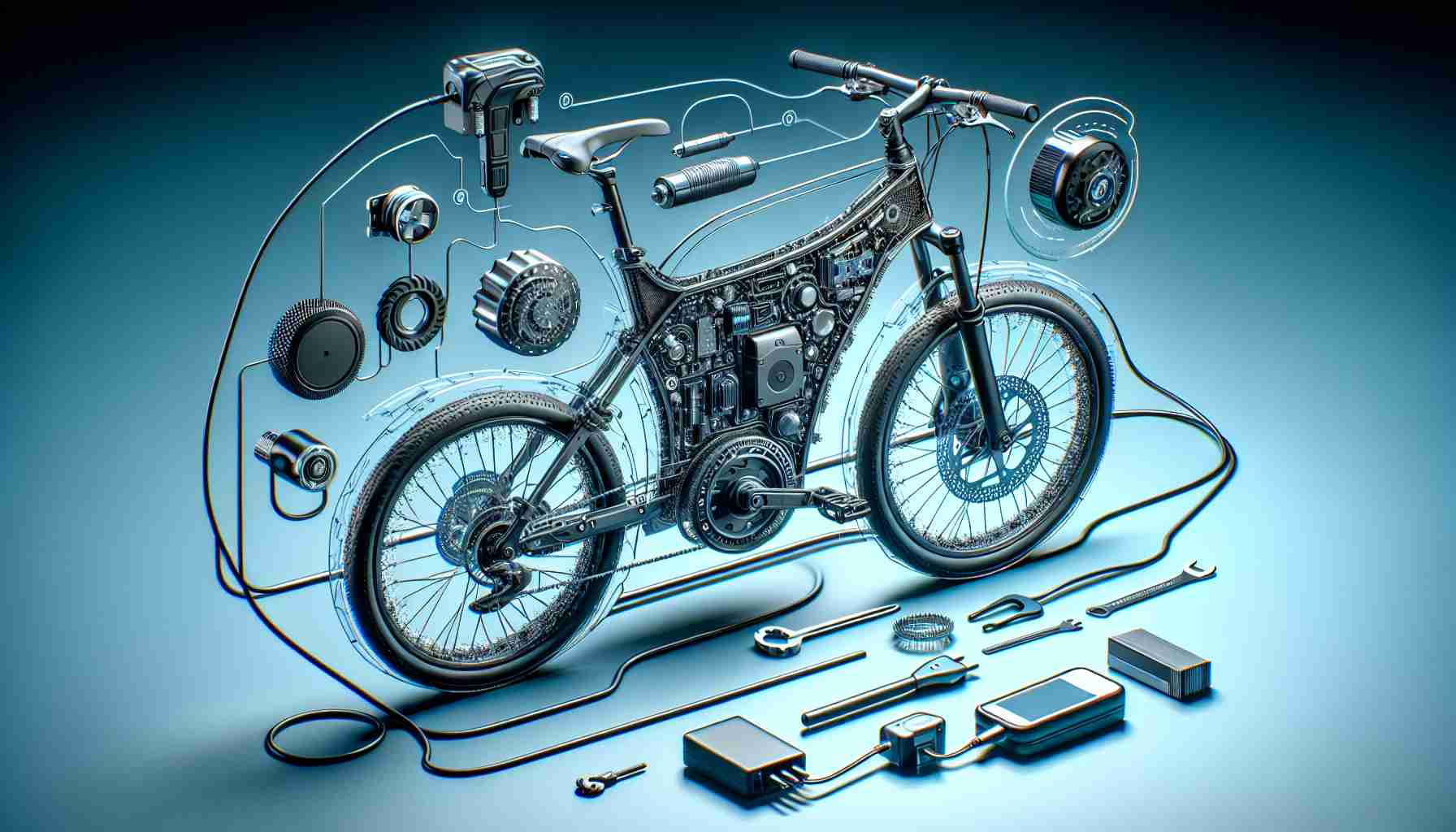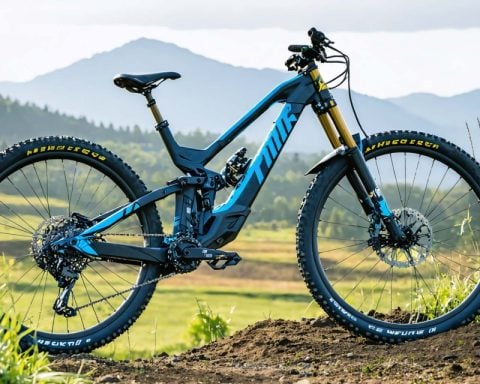In a world where bike sales are surging, electric bicycles are taking the lead. According to a recent report by the Asociación de Marcas y Bicicletas de España (AMBE), 241,000 electric bikes were sold in 2023, making up almost half of the industry’s revenue. Despite their popularity, high prices and supply issues plague the market, especially for high-demand models like mountain bikes offering a 290 km range.
But there’s a solution that breathes new life into your traditional bike: conversion kits. These kits are gaining traction, and UK-based startup Swytch, established in 2017, is leading the charge. This week, they unveiled their latest innovation, the Swytch Max+, boasting a range of 97 km and integrated lights that function as a headlamp.
A standout feature is its starting price of €459, catering to early adopters, coupled with an easy installation process. The kit comprises just three main components: a pedal sensor, a front wheel with a 250W hub motor, and a control and battery system. This setup mounts effortlessly on the handlebar with a quick-release and connects in seconds for pedal assist.
Over the years, Swytch has grown, amassing nearly 100,000 customers across 100 countries. Their latest products include the lightweight Swytch Air and the versatile Swytch Go, compatible with almost every bike, and now the Swytch Max+, which offers six times the range of its predecessors. Notably, there’s also an option to install the motor on the rear wheel, simplifying the setup even further.
Swytch kits are designed to be user-friendly, enabling a seamless switch between a manual and electric bike. The Max+ offers a range of 48 to 97 km, depending on the model, with charge times between 4 and 5.5 hours. At a maximum weight addition of 3.7 kg, it provides an attractive option for those seeking an affordable e-bike transformation.
Are Electric Bike Conversion Kits the Future of Cycling?
Electric bicycles are revolutionizing the way we think about commuting, fitness, and recreation. While electric bikes have surged in popularity, largely due to their convenience and environmental benefits, the high costs associated with them can be prohibitive. However, a fascinating new trend is emerging—conversion kits. These kits transform regular bicycles into electric ones, offering an affordable and flexible alternative to purchasing a new e-bike.
Conversion Kits: A Game-Changer for Cycling Enthusiasts
One might ask, why are these conversion kits so significant? Conversion kits, like those produced by Swytch, offer an inexpensive way to enjoy the benefits of an electric bike. While a brand-new e-bike can set you back thousands of euros, conversion kits start at just €459. This price accessibility democratizes e-biking, making it available to a wider audience.
Beyond Swytch, other companies like Faraday and Bafang are also offering conversion solutions, indicating a growing market trend. This development could lead to increased competition in the industry, potentially lowering prices further and spurring innovation.
How Conversion Kits Impact Our Lives
The benefits of conversion kits extend well beyond the individual cyclist. Communities that promote cycling face lower traffic congestion, reduced pollution, and even improved public health. By making e-bikes more accessible through conversion kits, urban areas can possibly experience these positive changes more rapidly.
Additionally, for those interested in sustainability, converting traditional bikes reduces waste and the environmental impact associated with manufacturing new electric bikes. Utilizing current bicycles lowers the carbon footprint even further than purchasing a newly manufactured e-bike.
Controversies and Challenges
Despite their advantages, conversion kits do come with challenges. For one, installation can be daunting for some, especially those less mechanically inclined, despite kits like Swytch being designed for ease. Another concern is whether these kits can match the performance and longevity of dedicated electric bikes. Moreover, there’s always a debate on regulations—how do these converted bikes fit into the existing laws and insurance policies surrounding e-bikes?
Advantages and Disadvantages
Advantages:
– Cost-Effectiveness: Conversion kits are significantly cheaper than new electric bikes.
– Flexibility: They offer versatility in terms of bike models compatibility.
– Sustainability: Promotes reuse of existing bicycles, reducing waste.
Disadvantages:
– Complexity: Installation might require technical skills.
– Performance: May not always match dedicated e-bike standards.
– Regulatory: Potential gray areas in law enforcement and insurance.
Future Outlook: Are Conversion Kits Here to Stay?
Given their cost advantage and flexibility, conversion kits might very well be a staple in the future of cycling. However, their success will depend on overcoming the perceived hurdles of installation difficulties and ensuring regulatory clarity.
For further exploration of e-bike trends and conversion kit options, readers can visit Swytch Bike or explore other conversion kit providers.
Ultimately, whether you’re a city commuter, a weekend warrior, or an environmental advocate, e-bike conversion kits offer a promising and inclusive pathway to the burgeoning world of electric cycling.







